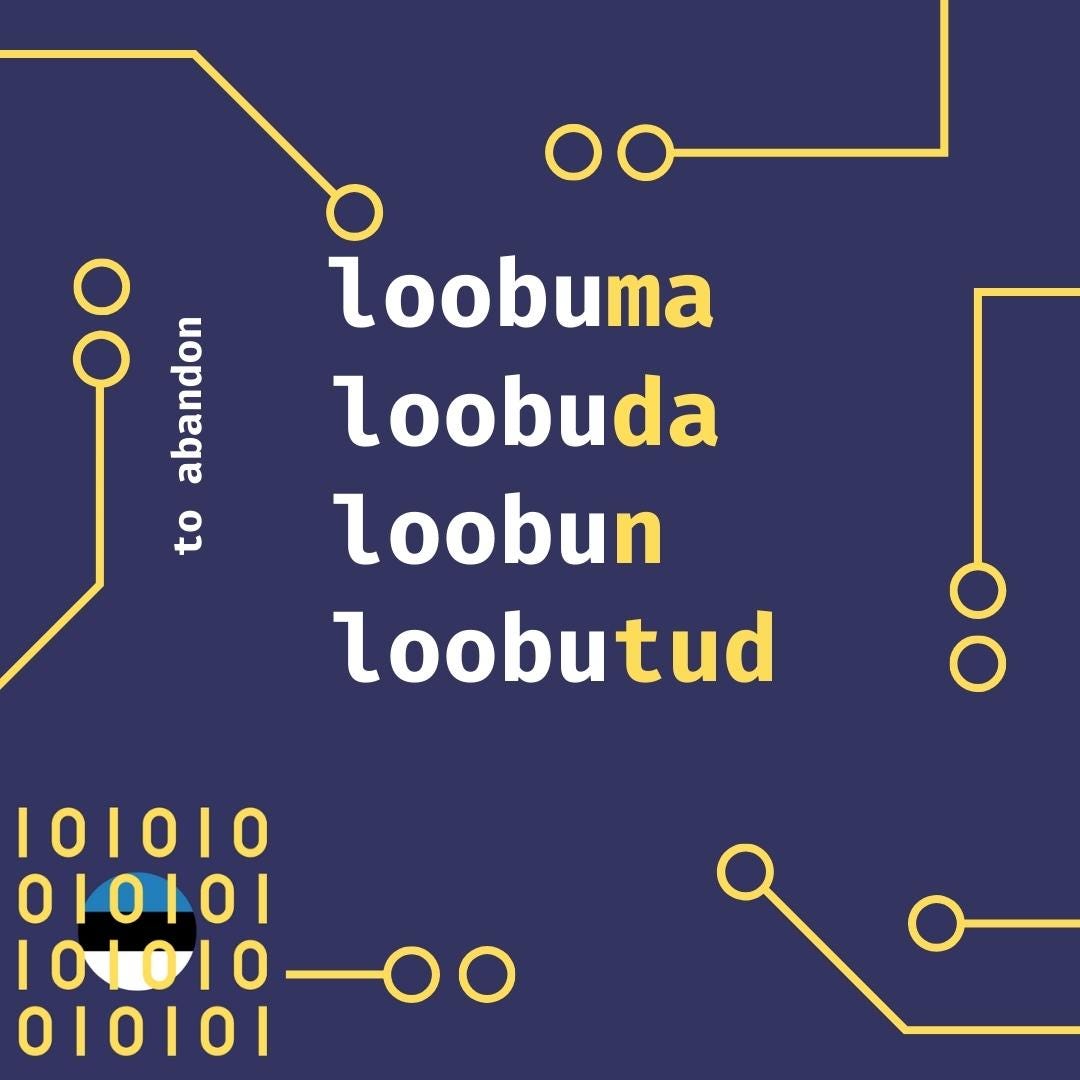Vocab: loobuma
to abandon
to back out of, to disclaim, to waive, to give up on something
Building blocks
loo- - “shed” or “create”
-bu-reflexive (an activity that is performed by the subject himself)-ma - infinitive ending
It’s likely derived from Finnish luopua (to abandon) and looking even further back from Proto-Finnic loodak (to create).
How to use it
In Estonian “who/what you abandon” is replaced with “of whom/of what you abandon”, which means that “who/what you abandon” is in the elative case (ending -st)
One way to think of this is that “abandoning” is actually “freeing yourself of something”, which makes the use of the Elative case (-st) more intuitive.
Another unique thing to note here is that sometimes instead of “what you abandon” we use "loobuma mida tegemast" which literally means "abandon what doing." However, it is idiomatically translated as "to give up doing something."
So for example both are correct:
I give up eating - ma loobun söömast (ending -mast)
I give up eating - ma loobun söömisest (ending -st)
The -mast form of a verb is formed regularly: just add “-st” to the “-ma” form of the verb:
tegema + st = tegemast
jooksma + st = jooksmast
and so on
Examples
Õpilane loobus oma unistusest
Literally: “Student gave up his dream”
Idiomatically: “The student gave up on his dream”
Õpilane - Noun - Nom Sg, "student"
loobus - Verb - 3P Past Sg, "gave up"
oma - Pronoun - Gen Sg, "his"
unistusest - Noun - Elative Sg, "dream"Ema loobus oma lastest
Literally: “Mother abandoned her children”
Idiomatically: “The mother abandoned her children”
Ema - Noun - Nom Sg, "Mother"
loobus - Verb - 3P Past Sg, "abandoned"
oma - Pronoun - Gen Sg, "her"
lastest - Noun - Elative Sg, "children"

